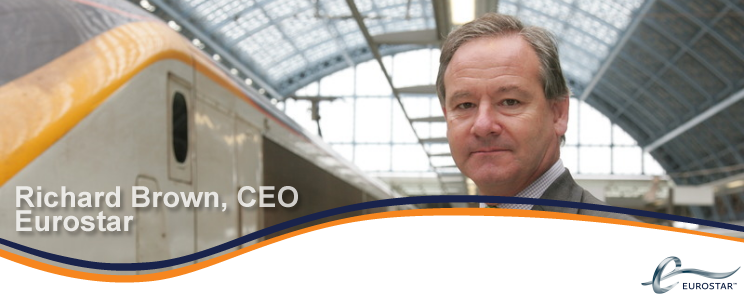
To be able to implement its challenging strategy, Eurostar needed to put in place a new organisational structure that focused on the governance and execution of programme and projects. Its business purpose was to make the company more responsive so that it was able to translate strategic and operational imperatives more quickly and more predictably into operational reality.
To ensure that the proposed programme and project community could meet the challenges he and the marketplace were setting, Richard Brown, CEO, asked CITI to support his management team. He needed to put in place the components of an integrated portfolio management approach to maximise value, monitor performance and ensure predictable programme and project delivery, with safety as a particular concern. This involved all members of the change community; the board in their role of portfolio steering group and as individual project sponsors, the programme management office (PMO) in it’s role as monitor and guardian of performance, and the programme and project managers themselves.
Our approach
CITI’s starting point was to ensure that Richard and his direct reports had a shared vision of what was to be achieved and could articulate this consistently throughout Eurostar, to provide the required leadership. This was achieved through a two-day workshop and one-to-one support on a call-down basis. A benefits-impact-product (BIP) map was produced to provide the context for creating the new organisational structure. The BIP map identified the financial and strategic benefits that were being sought, the impacts that needed to be achieved in the new operating model to deliver those benefits, and the products that needed to be created to make those impacts.
With a focused leadership team established, a half-day launch event was created and facilitated by CITI for those who were going to be impacted the most directly by the change. This set out the vision and purpose for the new community and how this was to be achieved. A celebrity guest speaker provided an interesting insight into change as part of selling the concept to the workforce.
The next step was to determine the number and types of programmes and projects Eurostar was currently running and had planned over the next four years. In parallel we profiled all Eurostar’s programme and project managers to determine their levels of knowledge, attitudes (and behaviours), skills and experience – what we describe as their KASE. Eurostar’s programme and project community members came primarily from the UK, France and Belgium and there were cultural differences that had to be allowed for. Looking across the population, we were able to identify an organisational footprint of Eurostar’s ability to run programmes and projects. To check this understanding, we ran a number of project health checks to identify common issues and points of concern.
From this analysis five strands of work were woven together into a mutually reinforcing programme of change. In essence, these were:
- Developing appropriate governance – policies, processes and procedures; accountabilities and responsibilities (RACI)
- Developing a PMO – initially by ‘fast-starting’ the PMO using our resources with apprentices from Eurostar, and transferring this to a full Eurostar capability within 15 months
- Establishing a toolset – providing a suite of our tools that included electronic best practice guides and analysis tools
- Establishing a development framework – creating career paths in programme and project management, and in the PMO
- Developing capability – through courses, master classes, workshops, mentoring, coaching and health checks we quickly established capability and ensured that it was embedded in Eurostar.
Across these strands, we used our experts to short-fill positions as role models, so that best practice could be demonstrated to Eurostar’s people. This made acceptance of the new way of working much easier, particularly as our experts were charged with transferring their skills across to Eurostar’s managers.
We also provided assurance with a soft touch focus on supporting programme and project managers to get it right.
Senior managers were involved with seminars and workshops to ensure issues and accountabilities associated with the governance of a portfolio and the sponsorship of programmes and projects were thrashed out and clear lines of responsibility drawn.
Outcome
The impact of the change programme was evident after just nine months. Project governance was in place and working. There was a perceptible ‘professionalisation’ within the programme and project management community and cultural differences had been addressed. The focus on performance and delivery had sharpened, and the status and influence of the PMO continued to grow. There remained much to do but, leading from the front, Richard had engaged all levels of the business and rapid progress was ensured, to the extent that within three years, Eurostar won the APM’s Programme of the Year Award 2008.
“CITI demystified many of the aspects of project management and governance for us, allowing the whole organisation to understand much more clearly what is required for successful delivery – a state much closer to ‘conscious competence’ than we were in before. We continue to develop our project arrangements, and to apply a project management approach to a wider range of change activities using the increasingly respected Project Management Office to advise and facilitate. I have no hesitation in strongly recommending CITI to others.”
Richard Brown, CEO, Eurostar









